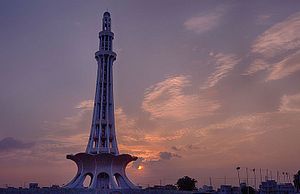On October 6, Cyril Almeida, a senior Pakistani journalist, published an article in the English-language daily Dawn entitled “Act against militants or face international isolation, civilians tell military.” The article narrated an intense scene of heated debate between the country’s top civil and military leaders, held a few days ago.
So far, the Pakistani government has rejected the story three times by calling it “amalgamation of fiction and fabrication.” In addition to its rejections, the government has put Almeida’s name on the Exit Control List (ECL), barring him from foreign travel. Dawn, meanwhile, continues to defend the story by arguing that the published material was fact-checked and crosschecked with multiple sources to ensure its credibility.
The vivid details reported in the story reflect a deepening division between the civil and military leadership that has further grown aggravated in the wake of the Kashmir crisis and growing international pressure on Pakistan for its inability to take on all terrorists after the Uri attacks.
Moreover, the reported content in Dawn’s story and other events that have unfolded in the last few weeks also highlight the Pakistani civilian government’s efforts to push back against the military to gain some space in the country’s defense policy and foreign affairs.
The story further points towards some of the military’s policies that run parallel to the civilian government:
Addressing Gen Akhtar, the younger Sharif [Prime Miniser Nawaz Sharif’s brother, who is also the chief minister of Punjab province] complained that whenever action has been taken against certain groups by civilian authorities, the security establishment has worked behind the scenes to set the arrested free. Astounded onlookers describe a stunned room that was immediately aware of the extraordinary, unprecedented nature of the exchange,” the Dawn report said. Meanwhile, a week ago, during a meeting of the National Assembly Standing Committee on Foreign Affairs, a lawmaker from the ruling party, demanded action against non-state actors, especially the chief of Jamaat-ud-Dawa (JuD), Hafiz Saeed. The lawmaker questioned the logic behind inaction against Saeed: “Which eggs is Hafiz Saeed laying for us that we are nurturing him?
Apparently, the government’s push has been the result of a growing internal and external pressure that has questioned Prime Minister Nawaz Sharif’s control over his government. The government’s cautious demand — some might call it an expression of frustration — of the military to gain consensus on some of the country’s security policies may not have been the result of India’s recently declared policy to isolate Pakistan internationally, but due to the steadily building pressure from Pakistan’s closet ally, China, which has questioned Pakistan’s logic behind putting a technical hold on India’s move to ban Jaish-e-Mohammad (JeM) chief Masood Azhar at the United Nations (UN).
According to Dawn, the prime minister has instructed the Inter Services Intelligence (ISI) chief that “fresh attempts be made to conclude the Pathankot investigation and restart the stalled Mumbai attacks-related trials in a Rawalpindi antiterrorism court.” However, it’s unlikely that in the coming days and weeks there will be any credible action against India-focused militant groups. In fact, it’s already clear where the fallout of the civilian government’s push against the military is likely to go: the government’s multiple denials of Dawn’s report and a travel ban on the story’s author are not moves made by the Sharif’s government independently; rather, the reaction from the government suggests the military pushing the civilian government to do its biding.
The message here is clear: the establishment may have tolerated the government’s questioning behind closed doors, but it has neither appreciated nor approved the disclosure of details that perhaps, according to the former, undermine its position and control. Since Dawn’s report became public, the international media has been trying to read into the story, which has clearly annoyed the military establishment. For the military, the government’s demand of “non-interference” in civilian law enforcement agencies work and action against certain militant groups means giving in to New Delhi’s pressure regardless of domestic implications. The policy highlights the military’s long-held strategic position of not acting against certain militant groups, even at the cost of internal security.
On the other hand, the government’s repeated attempts to reject Dawn’s story also reflect its weakened position vis-a-vis the military, where the government has been forced into taking swift action against the author of the report — a move that is by all means unjustified.
Caught in the crosshairs is the country’s media, that has been made a scapegoat in this latest phase of the power struggle between Pakistan’s military and civilian forces. Apparently, the government’s attempt at asserting control over the military has been rolled back by the latter before it could even begin. The ISI chief’s multiple refusals to attend the Senate Committee’s scheduled meetings to address the recent India-Pakistan situation and Almeida’s addition to the ECL by the government is an addition to a long list of forced surrenders by the civilians before the military.
Over the course of the next few weeks, the fate of the civilian government will become clear. Rest assured: Pakistan’s selective counterterrorism policy is here to stay, with banned organizations continuing to openly plan rallies across the country while sane voices like Almeida are shut down and targeted.

































